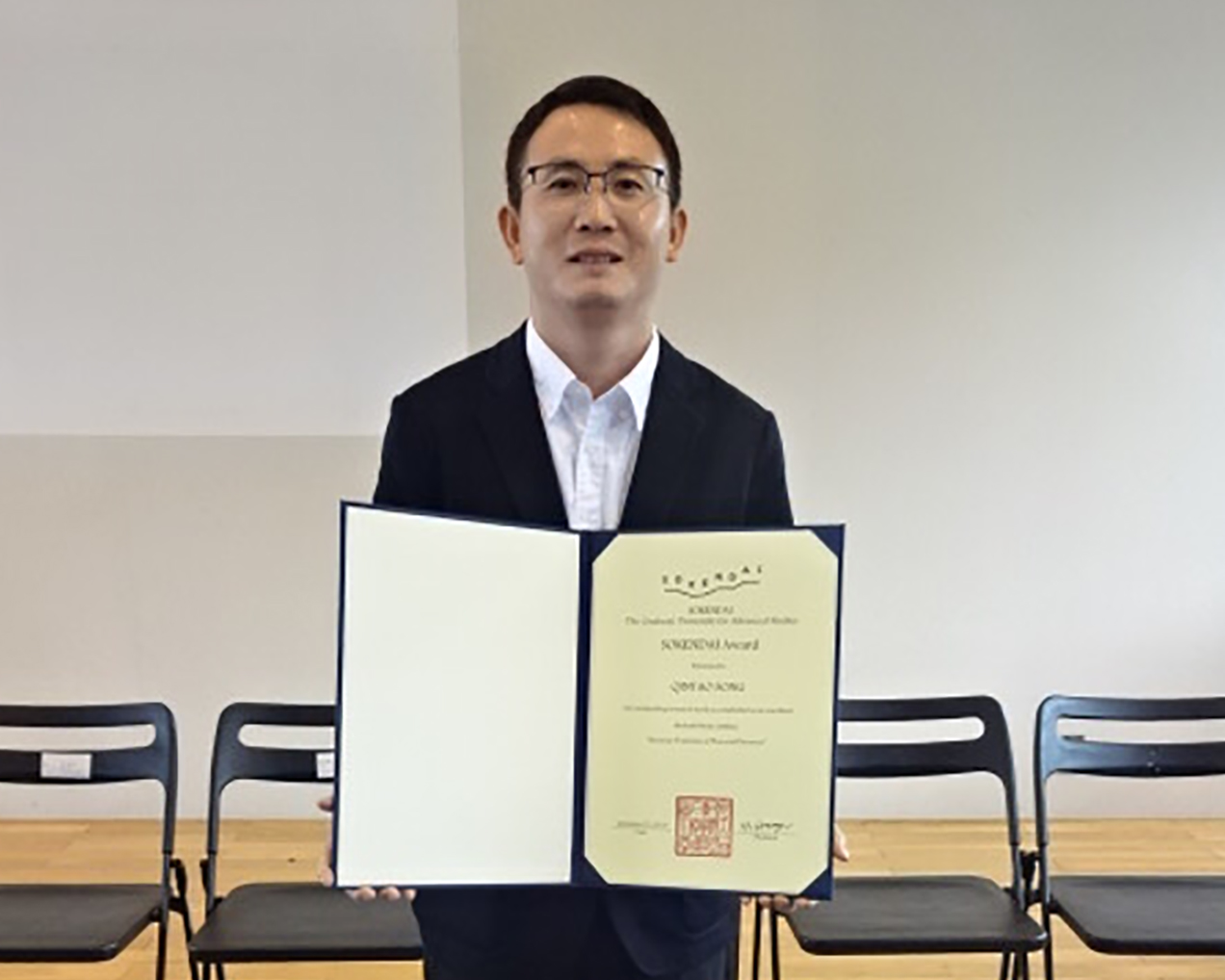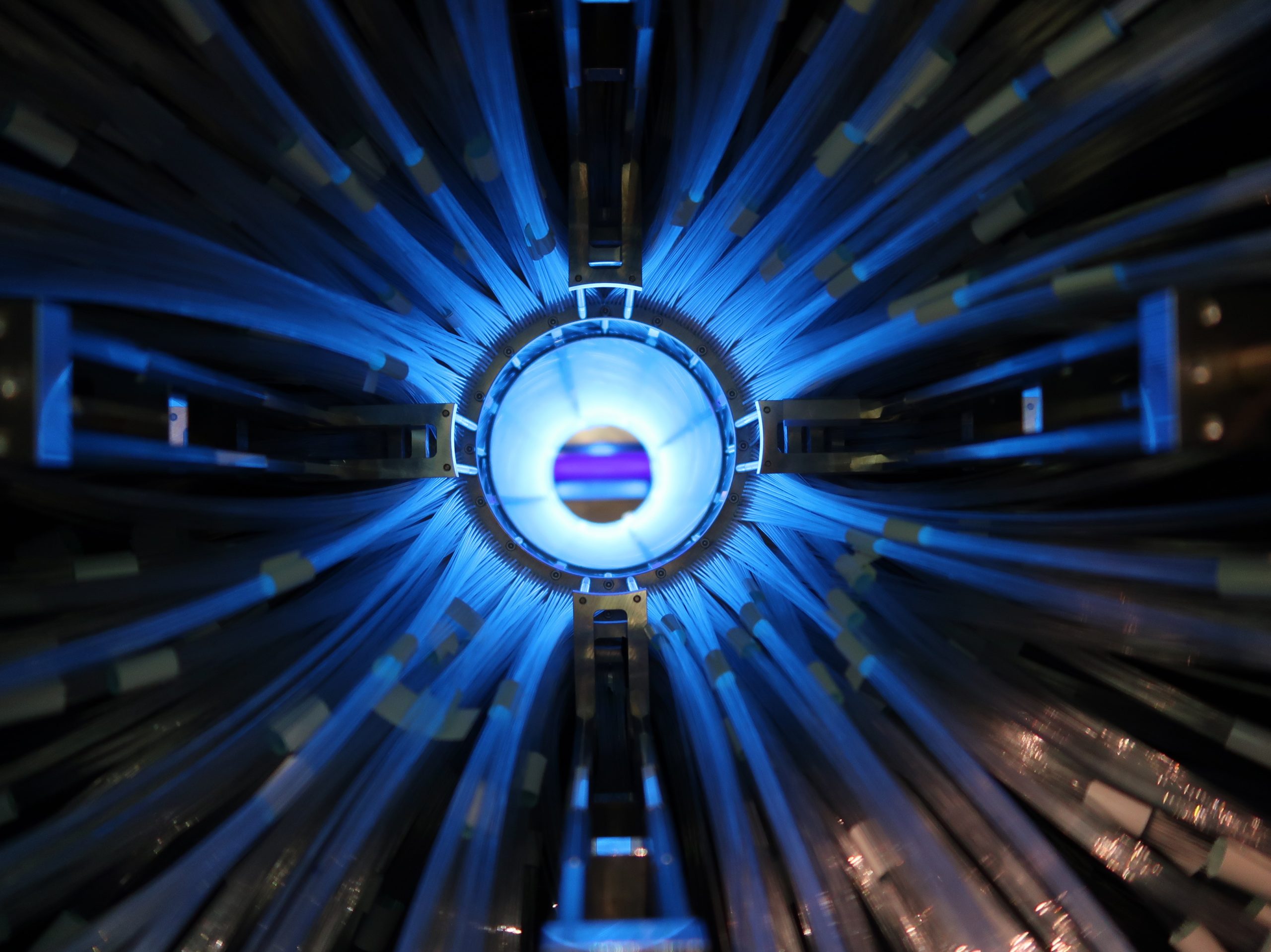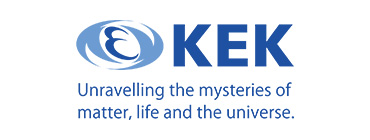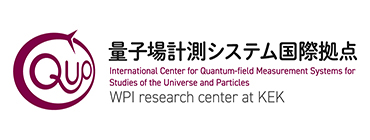- Topics
Dr. Song Qin-Tao at KEK IPNS Theory Center got the 3rd SOKENDAI Award
November 8th, 2019
-

Dr. Song Qin-Tao / ©️KEK
Dr. Song Qin-Tao at Department Particle and Nuclear Physics, School of High Energy Accelerator Science, The Graduate University for Advanced Studies, SOKENDAI and KEK Theory Center (at the time) got the 3rd SOKENDAI Award. The award ceremony was held after commencement on September 27, 2019. The SOKENDAI Award was founded in Academic Year 2018 to commend the students who have accomplished their outstanding research and have been conferred their degrees with the excellent doctoral thesis (cited from SOKENDAI website: https://www.soken.ac.jp/news/6385/ ).
The title of his doctoral thesis is “Structure Functions of Pion and Deuteron”. In this thesis, Dr. Song summarized three theoretical physics projects with the pion(*1) and the deuteron(*2).
The first topic is about generalized distribution amplitudes (GDAs)(*3) in the pion and its gravitational form factors. The hadron such as the pion consists of quarks: a kind of elementary particles. In the inner part of the hadron, quarks and gluons, the particles which transmit the force of combining quarks called as the“strong force”, have spatial distributions, and it is considered that the mass and pressure of the inner hadron are not uniform. Dr. Song obtained the pion GDAs and the gravitational form factors in the pion by analyzing the Belle experimental data for the first time in the world. Then, he calculated the mass and pressure distributions and their average radii for the pion by using the gravitational form factors. It is also the world’s first result by using experiment data. The Belle II experiment just started taking physics data with the upgraded accelerator and detector in the KEK Tsukuba campus. Therefore, we expect to have much progress on the GDA research in future.
As the second topic, Dr. Song provided theoretical predictions for a spin(*4) asymmetry of the “Drell-Yan process”which is the process of producing muons by the collision of proton and deuteron. There is spin structure which is specific for the spin-1 deutron, and it does not exist in the spin-1⁄2 proton. Dr. Dong showed that this new feature can be experimentally investigated by the proton-duetron Drell-Yan process. The Fermilab Drell-Yan project will use his theoretical prediction in preparing a future experimental plan.
The third topic is the research about gluon transversity of the deuteron. The transversity is the gluon distribution inside the deuteron with a specific spin-polarization direction. The gluon transversity of the deuteron has not been observed because it is very small. However, if one can observe, it reflects a new aspect inside the deuteron. This is an important quantity for investigating a new type of deuteron properties. Dr. Song proposed the possibility of observing it by a proton- deuteron reaction.
Dr. Song expressed his pleasure and appreciation as follows: “It is my honor to receive the Sokendai Award. Four years ago, I was admitted to Sokendai and began to study high-energy hadron physics with Professor Kumano at the KEK theory center. There are many excellent researchers in every directions of particle physics, nuclear physics, and cosmophysics, and I can learn the latest developments in physics here. The experience of studying physics at the KEK theory center and Sokendai is the most valuable treasure in my career. I thank the support of Professor Kumano who often had discussions with me no matter how busy he was, the referees of my PhD thesis including Professor Shoji Hashimoto at the KEK theory center, Sokendai, the MEXT Scholarship, and my family for my graduate studies”.
Footnotes
*1 pion
Lightest meson. It consists of a quark and an antiquark according to the quark model.
*2 deuteron
The nucleus consisted of one proton and one neutron.
*3 GDA
Quantity to describe the process of producing a pair of a hadron and an anti-hadron from a pair of a quark and an antiquark.
*4 spin
An elementary particle or a nucleus rotates as on its own axis. This character is celled spin.







